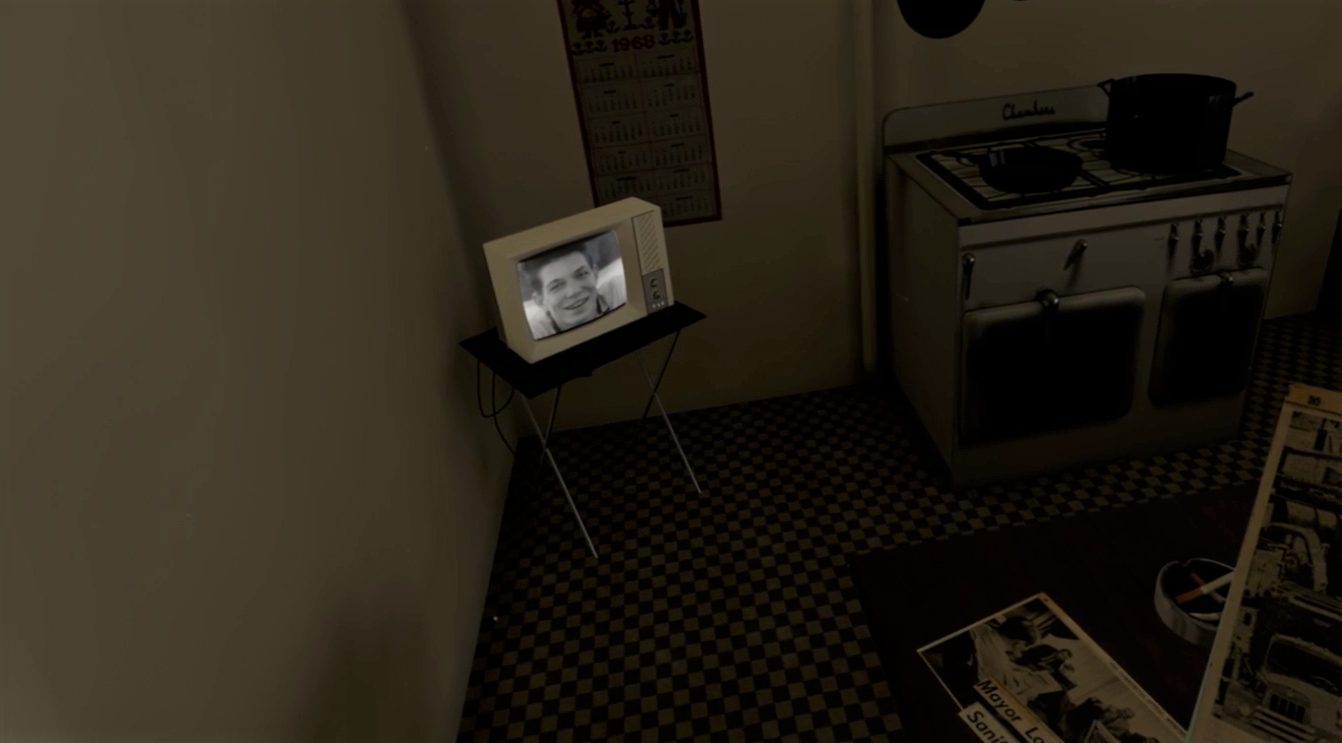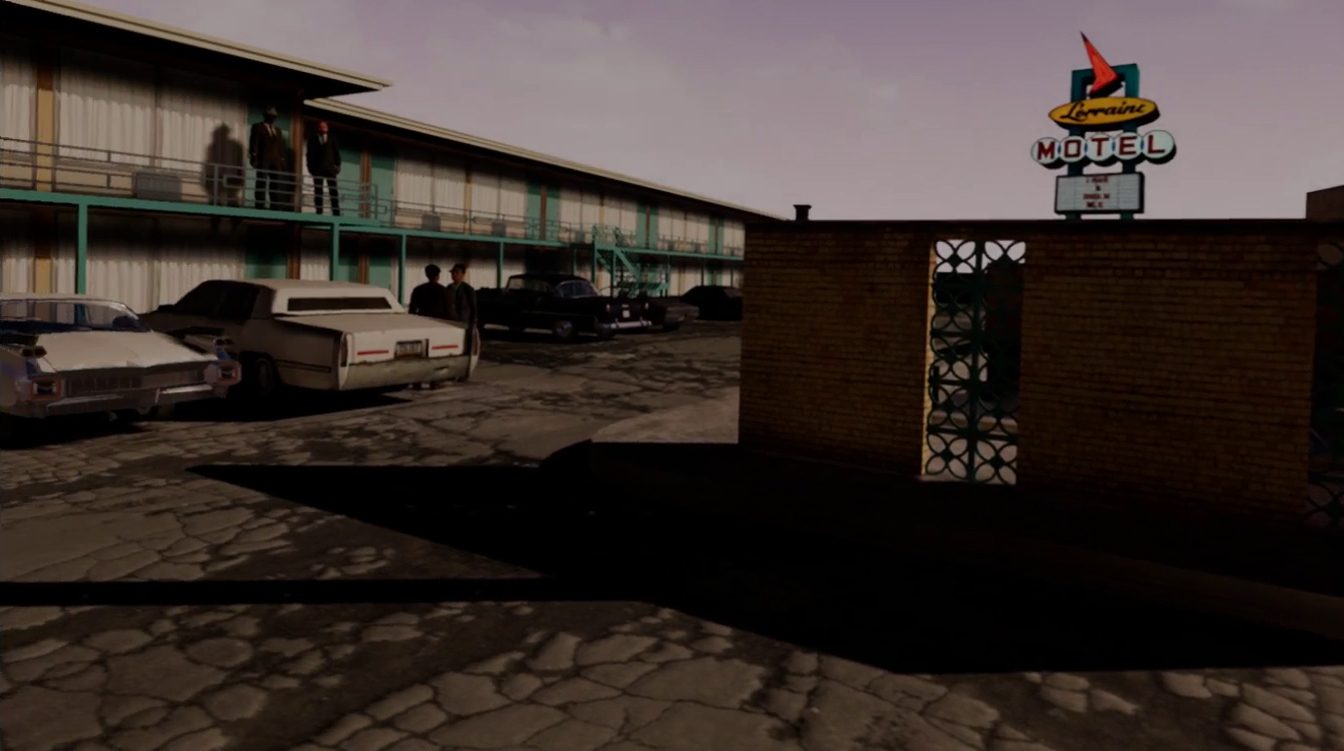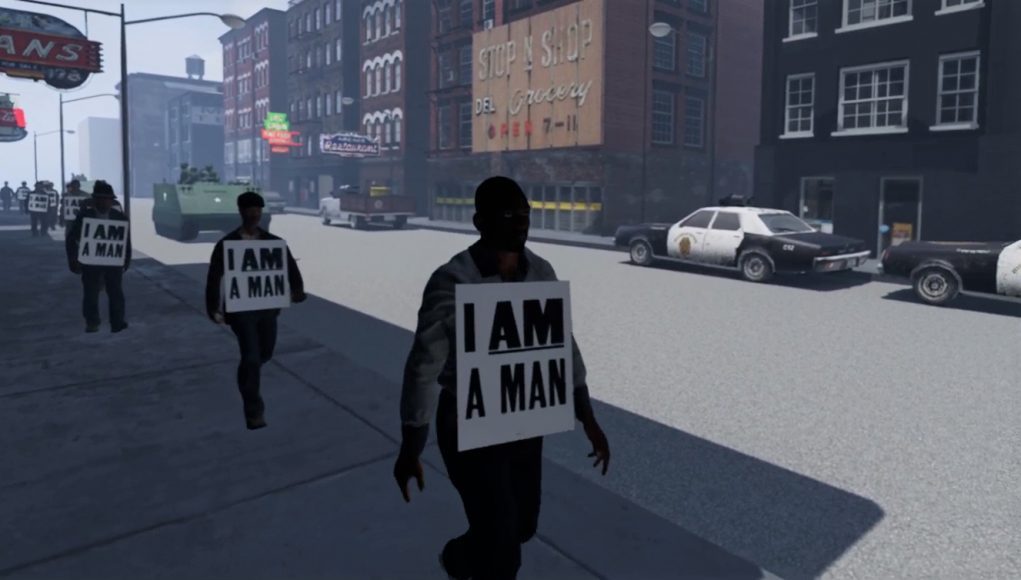I AM A MAN is an interactive VR experience that lets you participate in the 1968 Memphis Sanitation Workers Strike and the events leading up to Dr. Martin Luther King, Jr.’s assassination. Created by Dr. Derek Ham, an assistant professor of Graphic Design at NC State University, I AM A MAN was a winner of Oculus’ 2017 Launch Pad, a program designed to help fund VR content from diverse backgrounds.
Update (05/05/18): Derek Ham’s ‘I AM A MAN’ is now available for free on Oculus Rift.
Our original preview, which takes you through the entire experience, follows below:
Original article (02/08/18): It’s a natural thing to look at your own hands in VR. Maybe it’s to establish yourself in the virtual world, or maybe it’s just to see how the developers envisioned one of the most personal things in your possession. Appearing in an alley with two trash cans by my side, I peer down to see a pair of black hands. Of course, they’re no more ‘black’ than my physical hands are ‘white’. Outside of VR, my hands are actually a pale pink color, and my new ‘black’ hands are actually a soft brown that lightens near the palms and the finger tips. When it comes to race, I rely on the imperfect words that resonate with the historical context; both the laughably imprecise and shockingly hateful ones that existed both then and now.

I AM A MAN transports you to 1968 Memphis, Tennessee, where you, a sanitation worker, are put at the heart of the struggle for equality. Spliced within the interactive elements of the experience, which include dumping trash, reading news clippings, and watching historical TV broadcasts, I see photos and hear audio from an actual worker who speaks about how they suffered unpaid overtime, no sick leave, and how they were meant to feel utterly replaceable at every turn. I learned how the city’s sanitation workers, who were almost exclusively black, would routinely be relegated to the lowest-paying jobs and never given a chance to rise to the role of a heavy equipment operator, a superior, better-paying position reserved for whites. These, I would learn, would form the main arguments behind the creation of the sanitation worker’s labor union and the resultant strike that shook not only Memphis, but unwittingly played as backdrop to MLK’s assassination.
Reading a few historical newspaper clippings in my kitchen, a TV program plays in the corner. I’m not sure where the program is from, but it feels like a public opinion piece on the nightly news.
“If I’m a business man, and people who I do not want in my business insist on either coming in, or boycotting – which is in their perfect right to do – then certainly it’s not going to make me love them,” a well-dressed man explains.

“A lion might like another lion better than he’d like a bear. That’s just like white people and niggers. I mean, white people are going to naturally like white people better than they do niggers,” a young man says sheepishly.
“It’s just not the things we’re used to down here,” a stone-faced 20-something says. “They come in and they sit down, and we’re not used to them sitting down beside us, because I wadn’t raised with ’em, I never had lived with ’em, and I’m not going to start now.”
The screen fades to black, and I’m back in the void where historical photos spin around me. The un-named sanitation worker continues:
“Sometimes you would get threats—’nigger, go back to work’—and this kind of thing […] all it means is a man is not a man. Whatever you say, or however you put it, when it comes down to that, a man is not a man, and he don’t have anything to say about his hours and working conditions.”
More interactive vignettes show me the picketers wearing the movement’s iconic placards reading ‘I AM A MAN’. An armored personnel carrier rolls down the street, soldiers glaring at me as I pick up my own ‘I AM A MAN’ sign.
Then MLK enters the story. “People had faith and confidence in him,” the worker says. I can see him placidly standing at the Lorraine Motel. I hear the gunshot of his assassin.

Now I’m outside of a busted-looking TV shop watching Bobby Kennedy’s speech where he eulogizes MLK and calls for peaceful demonstrations to continue in the light of the clear outrage that was sure to erupt from his slaying. What follows next is truly unexpected…
The experience’s creator Derek Ham told Road to VR the free 15-minute experience is “on track to be available in April,” which will mark the 50th anniversary of the death of MLK. The National Civil Rights Museum at the Lorraine Motel in Memphis is also slated to feature I AM A MAN at some point in the future. While he’s given the museum exclusive public usage rights for a year, he also hopes to take the I AM A MAN on the road to venues such as schools and libraries.
We’ll be bringing you a greater in-depth look at the making of I AM A MAN this month, so check back soon.







